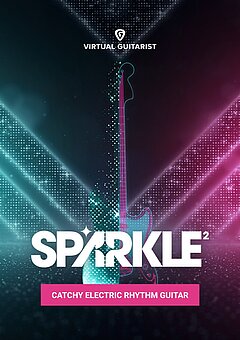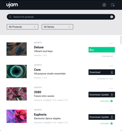4 Tips to Hit Your Biggest Music Production Resolutions in 2023
Simple, practical steps to help you finally build the skills you want in less time than you ever thought possible.
JANUARY 22ND, 2022
1. Faster production
The more iterations you go through, the more opportunities you’ll have to improve your work. In practical terms? Finish more songs — unreleased bangers count for very little! Building the discipline of finishing songs quickly will not only give you a bigger discography, it also gives you more reference points to build off of in a much shorter time. There’s truth to the notion that speed comes from repetition, but without conscious intervention you can also learn bad habits that slow you down.
Instead, try setting ambitious timelines for finishing songs; for example, imagine trying to finish a song in 5 hours. Does that timeframe sound ridiculous to you? Excellent — give it a try and get as close to a finished song as you possibly can without giving yourself a minute more (you can split this up into multiple sessions if you prefer). The intent here is not to create your best work; it’s to eliminate idle time and force you to make decisions and see where they lead. Making more decisions and evaluating the results adds more reps under your belt, and time constraints are a great way to increase your focus while producing!
2. Use more templates ... then throw them away?
Many producers swear by templates, whether that implies entire sessions with specific instruments and effects always set up on certain tracks or using their go-to effect chains all the time. A certain amount of templating is key for eliminating busy work that takes you out of your flow, but this is almost guaranteed to make your music sound stale in the long term. Once you become proficient in your craft, your time can’t just be spent learning — you need to unlearn a lot of old habits. By using the same templates for too long, you can slow your growth and become dependent on your previous work to guide you.
Every so often, audit some of your templates; delete old effect chains and build new ones from scratch, re-do your track routing, use different instruments, avoid building off of old synth presets and force yourself to create new patches that are entirely different from anything you’ve built before — start from scratch here and there to see how you can do things differently, and always assume there’s a more efficient way to work. It’s better to do this piece by piece to avoid overwhelm, and it can be as on the fly as you like. Look for starting points you’ve been using for a while and refresh them every several months or so if you’re producing regularly!
3. Force your creativity into the open
It’s all too easy to fall into the trap of thinking, “If I only had [X plugin], I’d be able to make this sound so much better” ... but while getting new plugins is essential to a certain degree in order to keep up with major advancements in audio technology, the desire for the next new thing is usually much greater. This can quickly become an excuse to abandon tracks before they see the light of day, which will punish your growth as a producer — after all, progress is always slower in a void. At worst, this idea can even make you dependent on tools for creativity, which only intensifies producers’ block.
This doesn’t mean you should never buy new software, of course; simply that it’s important to identify whether the issues you’re facing are connected to your gear or your skills. An easy way to stay objective is when you get hit with a dose of gear envy, ask yourself: “Do I have other ways to achieve the sound I’m looking for?” You might be surprised by how often the answer is “yes” — find creative solutions to achieve the same thing and you’ll be amazed at how much versatility you gain as a producer in an incredibly short time. Plus, you can always take advantage of great free plugin options first like Finisher MICRO and Usynth DRIVE to expand your collection!
4. Upgrade your plugin arsenal
There’s a caveat to the last tip — in many instances, you’ll discover a tool that genuinely does something you can’t achieve with your current setup, or at least not without significant amounts of extra work. Sometimes a specific plugin is almost magical in its ability to do exactly what you’re looking for in moments; if you immediately know it will live on multiple tracks in every single DAW session you start from here on in, it might be time to add it to your wishlist.
Of course, the ticket price of your shopping list can easily ramp up to absurd levels, making it essential to have a system for keeping / cutting different entries. A simple one you can try is:
- Can I accomplish nearly identical processing techniques with the tools I already have?
- Does it do something unique I’ve never seen before that will help me achieve a style I love?
- How likely do I believe I am to be using this plugin years from now?
Another factor to consider is whether a plugin might significantly increase your production speed by removing a lot of manual work from the process — virtual acoustic instruments are a perfect example, like basses or guitars. These often take a lot of time to finesse to get close to the sound of live instruments, but UJAM’s Virtual Bassists and Guitarists shave away 99% of the busy work and provide you with a realistic result immediately!
Wrapping up
There are plenty more standard practices we could include of course, such as weekly progress trackers and many different forms of goal setting ... but we chose to keep this article to practical steps you can start at any time that shouldn’t require overcoming any major hurdles. As long as you consistently apply the steps above to your production process and apply a bit of creativity, you’ll be able to see a ton of progress in 2023.
Above all, what matters is that you’re diversifying your production skill growth and putting out new songs frequently — the faster you move, the faster you’ll hit your production goals this year!
About the Author
Harry Lodes is a copywriter, marketing consultant and content writer for audio and ecommerce brands. He lives in the Philadelphia area, releasing Eastern/Western hybrid EDM under the artist name KAIRI hearkening back to his roots in Berklee College of Music.
Stay up to date
Sign up and we’ll send you an e-mail with product news and helpful stuff every now and then. You may unsubscribe at any time.
Defy Limits
We develop software solutions that enable people to create, consume and interact with music.







